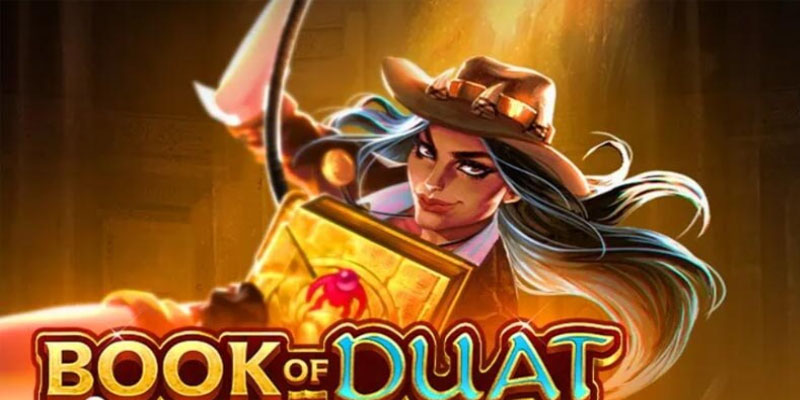
The Book of Duat serves as a captivating gateway into the mesmerizing world of ancient Egyptian beliefs regarding the afterlife and the underworld. It is not merely a text but an intricate tapestry woven with symbolism, mythology, and spirituality. This mystical book reveals the profound understanding the ancient Egyptians had about life, death, and what lies beyond, offering invaluable insights into their culture and religious practices.
Uncovering the “Book of Duat”: Gateway to the Ancient Egyptian Underworld
Introduction to the “Book of Duat”
The Book of Duat, also known as the Book of the Dead, forms part of a series of funerary texts that guided souls through the perilous journey of the afterlife. The term “Duat” itself refers to the Egyptian underworld, regarded as a realm filled with trials, tribulations, and transformative experiences. In this ancient narrative, the deceased encounters diverse deities, navigates treacherous landscapes, and ultimately seeks judgment before Osiris, the god of the afterlife.
This sacred text is composed of numerous spells, prayers, and illustrations designed to assist the soul in overcoming challenges and ensuring a successful transition to the afterlife. The importance of the Book of Duat cannot be overstated; it embodies the ancient Egyptians’ deep spirituality and their desire to maintain a connection with the divine beyond the earthly realm.
Ancient Egyptian Views on Life and Death
The Egyptian perspective on life and death was profoundly distinct from contemporary ideas. They believed in an eternal cycle of existence that transcended the boundaries of physical life.
The Concept of Ma’at
Central to their belief system was the concept of Ma’at, which represented truth, balance, and cosmic order.
In the eyes of the ancient Egyptians, maintaining Ma’at was essential for achieving a harmonious existence. Life was viewed as a series of continuous cycles, where the individual was responsible for aligning their actions with the principles of Ma’at. This philosophy dictated societal behavior, moral codes, and rituals.
The Soul’s Journey Beyond Death
Upon death, the soul embarked on a journey toward the Duat, where it faced various tests and challenges.
The significance of the Book of Duat lies in its detailed description of this journey, illuminating the struggles and encounters a soul would face in the afterlife. The ancient Egyptians envisioned the soul as comprising three distinct parts: the ka (spiritual double), the ba (personality), and the akh (transformed spirit). The integration of these elements was vital for achieving immortality.
Legacy Through Rituals
Funerary practices played a crucial role in shaping the Egyptian worldview regarding life and death.
Rituals such as mummification and offerings were performed to ensure a smooth passage to the afterlife. These practices were deeply entrenched in their culture, reflecting a widespread belief that life continued in another form beyond the grave. The Book of Duat served as both a guide and a protective measure, instilling hope in the hearts of the living that their loved ones would find solace in the afterlife.
The Journey Through the Duat
The journey through the Duat is fraught with obstacles, trials, and spiritual revelations.
Trials and Challenges
One of the most compelling aspects of the Book of Duat is the depiction of the soul’s trials as it ventures through the darkened landscape.
As the soul enters the Duat, it confronts fierce guardians and mythical creatures that test its worthiness. The various sections within this underworld are often filled with symbolic meanings, representing fears, desires, and the duality of existence. The ancient Egyptians understood that facing adversity could lead to spiritual enlightenment, serving as a catalyst for transformation.
Encounters with Deities
Deities play a significant role in the journey through the Duat, imparting wisdom and guidance.
Among them, Osiris, Anubis, and Thoth stand out as key figures in the narrative. Osiris, the god of the afterlife, presides over the judgment of souls. Anubis, the jackal-headed guardian, oversees the embalming process and guides the dead through the Duat. Thoth, the ibis-headed deity of wisdom, records the results of the weighing of the heart ceremony, determining the fate of the deceased.
These divine encounters serve to remind us of the interconnectedness between mortals and the divine, illustrating that guidance from higher powers is essential in navigating the complexities of existence.
Conclusion
The Book of Duat stands as a monumental testament to the ancient Egyptians’ intricate understanding of the afterlife, spirituality, and the human condition. Through its vivid descriptions, rich symbolism, and profound teachings, this sacred text invites us to reflect on our own beliefs and values regarding existence and transcendence.






